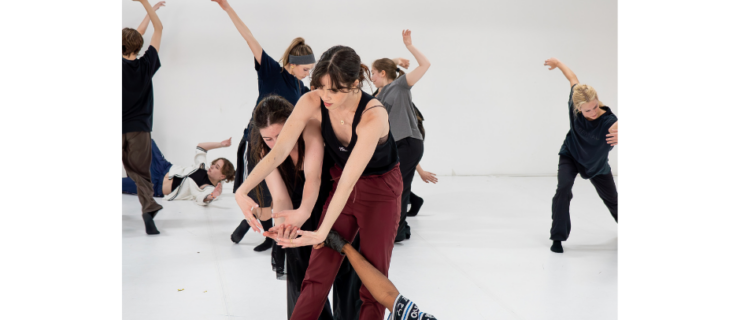Push vs. Pull: Tyler Angle vs. Robert Fairchild
Two of New York City Ballet’s best male solists have opposite qualities: Robert Fairchild and Tyler Angle. Last week Fairchild exploded onto the stage in Stravinsky Violin Concerto. Strong and sharp, he seemed to thrust Balanchine into the present, as though the piece were just choreographed. He brought incredible energy to the stage; he sizzled in his jumps. He attacked the geometric shapes almost to the point where it looked like he would attack his partner, Yvonne Borree, when he crouched down to hold her turned-in knees. His dynamism made you sit up and wonder what would happen next. Sheer willpower propelled him to dance big and fast and strong.
Tyler Angle, on the other hand, is naturally elegant with beautiful lines, as though classical ballet were made for him and he for it. Nothing seems difficult, whether he’s a dashing regiment officer in 19th-century Vienna, a fickle young man in Wheeldon’s The Nightingale and the Rose, or an impassioned immigrant in Bigonzetti’s Oltremare. His face is open and easy and he lavishes attention on his partner. His dancing seems to simply flow from his breathing.
Both these dancers invest every ounce of themselves in their roles. But where Fairchild pushes his energy outward, Angle pulls your energy to him. Both are exciting to watch, which is great because in this time of depleted male principals at NYCB, their eventual (and hopefully soon) promotions to principal rank is something to look forward to.
Of course, they are not actually “new” talents. Tyler Angle joined the company in 2004 and Fairchild in 2006. Interestingly, they both have siblings who are already principals in the company and surely serve as examples the them each. (Tyler’s brother Jared is a sure-footed partner, and Robert’s sister Megan excels in humorous and dolls roles.)
For NYCB to have excellent dancers of this range—from dreamy to hyper awake—enlivens the repertoire. Even more, it draws on different parts of ourselves as we watch, and thus engages us as whole, complex human beings.




